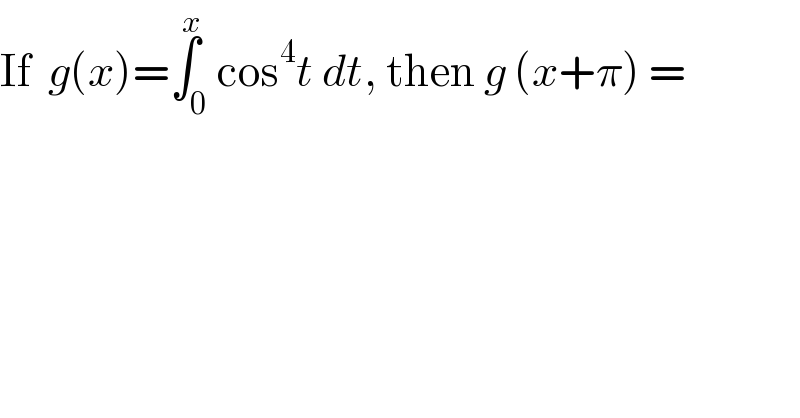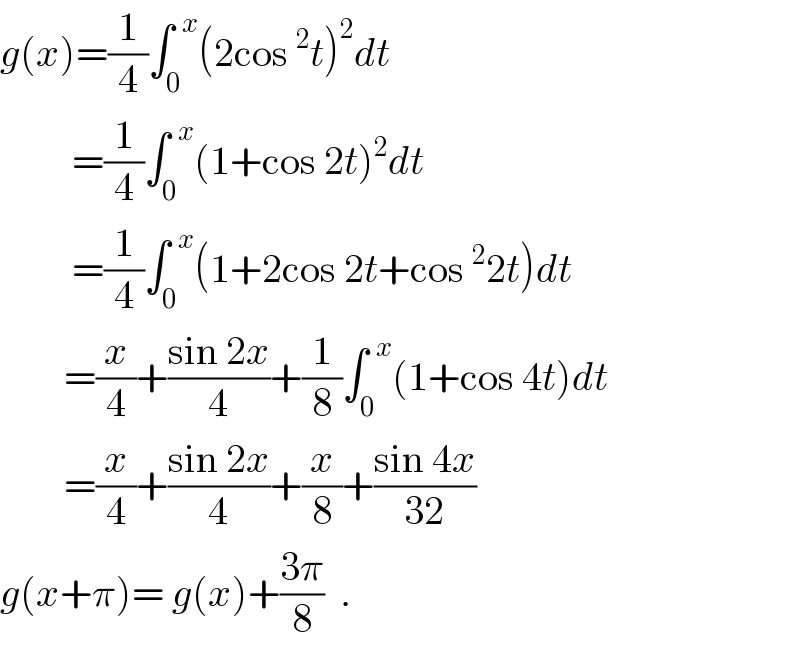
Question and Answers Forum
Question Number 30354 by soksan last updated on 21/Feb/18

Answered by ajfour last updated on 21/Feb/18

| ||
Question and Answers Forum | ||
Question Number 30354 by soksan last updated on 21/Feb/18 | ||
 | ||
Answered by ajfour last updated on 21/Feb/18 | ||
 | ||
| ||